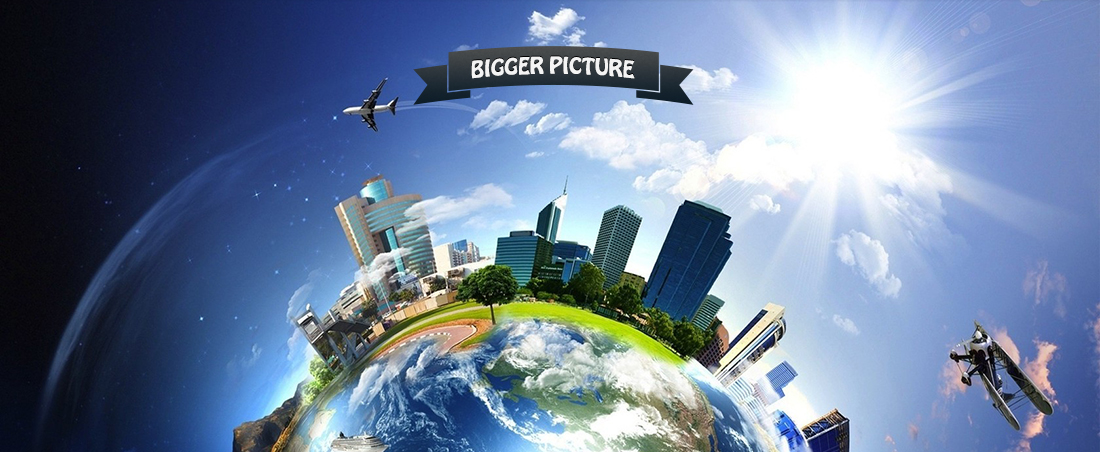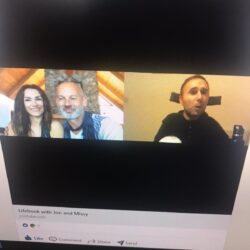Disability is a social problem – fact! The real question is ‘how do we solve this’? It’s quite a big and complex puzzle, created after many years of historical goings on. So, we have to first ask why have disabled people been isolated, marginalised and oppressed for so long? Why do we have buildings and transport systems without full access? Why are disabled people less likely to be employed, to participate in sports and to be socially included?
Disabled people take a stance that historically they were seen as the ‘problem’ (explained within the medical model of disability). If their medical condition couldn’t be cured (and some weird practises took place on this front), it was deemed better to send disabled people away from society.
During the 1970’s a group of disabled people decided this just wasn’t right, thank god, and spoke out against it. These few people articulated what has become known as the Social Model of Disability. This was the first great progressive ideology for the movement. In essence it states that disabled people have a medical condition (or impairment) but are not disabled by this, instead by societal barriers. These barriers are seen in the physical environment, in peoples attitudes, and in organisational policies/procedures. Without steps, stereotypes and silly procedures; everyone is able!
There is still the question of where ‘internal barriers’ fit within the Social Model. Limitations such as ones impairment, socio-economic background, ability to purchase supportive technologies, personality traits (confidence and self belief) are barriers that society cannot always provide solutions for. However, I feel a barrier is there to be overcome (internal or external). An individual has the responsibility for their personal growth, whilst society has a duty to remove all external barriers.
These models and the language used within them are very important to disabled people. The phrase ‘people with disabilities’ within the Social Model does not make sense, but some people prefer self-identifying with this expression. Debates will continue for years on this one I am sure. Importantly, this ownership of language and the understanding of an empowering model underpins the disability rights movement. This second progressive ideology from disabled people outlines the views of Human Rights and equal access to everyday life. This is theoretically very difficult to argue with, so why in 2012 are disabled people still facing so many barriers and social exclusion?
If we look at race issues, disability is around 20 years behind. The first Race Relations act was in 1976 and the Disability Discrimination Act was in 1996. We still see racism today showing the further struggle ahead, but we have seen vast improvements on both fronts too, giving us hope.
One area I have been musing over is language. Following a conversation with Philip Connolly at the RNIB, I have had this concept reaffirmed. Words are powerful things; they can offend and enlighten at any moment. They give people an identity, a belonging and a label. Rightly or wrongly words could be the key to this whole issue.
At present our worlds living standards are as unequal as ever, our economies are struggling, our natural resources diminishing and our social morals tested everyday. When we look at the key players responsible for improving the lives of disabled people, we may include: government, businesses/employers, everyday citizens, disabled people themselves and you.
Let’s take a brief moment to consider these stakeholders priorities and how a different type of language could bridge the gaps between them:
Government – Without opening up a debate around traditional economics vs Keynsian economics, our current government in the UK are trying to eradicate debt. Some of their perceived attacks on disabled people are in seeking cuts to the welfare bill. It doesn’t take a brain surgeon to see that offering financial support to disabled people in jobs and those seeking work will have a long term economic gain. If the large pool of disabled people are used in the economic workforce, the support ‘bill’ would be lower, and the income tax revenue made higher.
More than that, a vibrant, motivated, innovative and resilient pool of people would be mobilised. Maybe disabled people are the answer to the global economic problems. Either way, supporting those able to work into employment is a win:win. With the overall costs lowered, and income tax higher; the need to cut the welfare bill would be obsolete, and those unable to work could comfortably receive the support they rightly deserve.
Businesses and Employers – This argument follows the same line as above for government. Whilst the government invests in disabled people to be independent, active in the workforce, and socially included; businesses need to see the benefits for all in reducing the current barriers to employment. With some simple steps of making buildings more accessible, implementing good quality Disability Awareness Training, and encapsulating inclusion in all procedures; everyone would see vast advantages. A business will be employing an untapped and unrepresented part of society, receive new ideas and insights, understand 20% of their market more genuinely, and I am positive they would see better turnover and profits.
Everyday citizens – Most people just do not see, let alone understand disability. The problem with the Social Model is that whilst it rightly empowers disabled people, it blames other people. These other people have never purposefully created these barriers, nor set out to exclude disabled people. Therefore if the concept of barriers, exclusion and the benefits of inclusive societies are calmly and openly discussed; I believe the good nature of people would prevail. Once the masses of public opinion start to see this tainted history and the unfairness of not accessing public transport, public buildings and parts of everyday life; we would see a seismic shift in perceptions of disability. This should not create pity, but resonate as a humans right to a fulfilled life, no matter what their challenges are.
Disabled people – As much as being born with or acquiring a disability sucks, I cannot see the use of negative energy. Using the Social Model of Disability and expecting to have your rights is perfect. Make this your aim! However consider the way this is achieved. If we blame government, businesses and society they will simply switch off. If we talk in a language that resonates and better still works within their aims, without compromising our principles; we will get further. As much as it is great to feel part of the struggle and the movement, we have to break out of that silo and offer solutions to those holding the power to implement them.
You – Whoever you are, you will definitely fall into one of the above, and probably more. Rome wasn’t built in a day, and no-one expects you to change the world overnight. However please have a think about these sentiments. Is there any where or any way by changing your message, words or methods that others might react more positively about disability as a social problem? If so, give it a go and see how you get on.
I am not suggesting this is the answer to an age old problem, but I think it is a factor that can be rectified easily. Having put my musings and thoughts out there, I would be grateful if you would hit reply, write a comment or tweet me on your thoughts too. Even if this isn’t the answer, maybe, just maybe, it’s a newer approach that could unlock other unknown solutions down the line.
Thanks for reading this and don’t forget to keep me posted on your general news too. I’m only at the other end of this beautiful thing called the internet 🙂






Your absolutely correct Martin, Rome wasn’t built in a day and people living with disabilities will not experience total equality as an actualized reality unless we and our communities continue to take action. We do take action in all sorts of ways and the Social Model is just one way in which we can challenge societal attitudes and the environment in which we live. However this will not happen unless we continue to take a proactive and resourceful approach and give society a helping hand. We need to remember that society as a whole does not understand or have an awareness of the issues associated with living with a disability and why should it?
We do not teach our children about disability as part of the school curriculum and it’s not something that we are exposed to as we are socialized within the family unit unless we have a family member who lives with a disability. I am living with HIV which is a highly stigmatized health condition, HIV raises all the taboos in society which creates discomfort and fear, society on the whole holds prejudiced and stereotyped views of people living with HIV; as it does about disability.
So what’s the answer?
Well I don’t have all the answers but here are some of my thoughts. I believe that we can do many things; we are after all a very resourceful, resilient, creative and determined community.
Firstly we must of course continue to educate, campaign and advocate for our human and equal rights; this is our birth right.
Secondly we must continue to and increase our profiles within our local national and international communities; we must challenge stereotypical role models and have the courage to demonstrate positive role models at home, at work and in every aspect of our lives. We must take leadership not just in the context of our activities within disabled people’s organisations but also in terms of all of the very different things that we can do, the very different people that we are and the in the context of the many different roles that we occupy.
We are able to be equal contributing members of society and we must promote ourselves at every opportunity and take leadership not just in terms of the disability agenda but in terms of enabling society and inspiring change.
In a couple of weeks we will witness the largest, most watched and attended Paralympics ever; this is a fantastic opportunity to engage with the world and demonstrate that we are capable, we can utilize this opportunity to tap into societies fascination with ways in which we now live our lives. This is not just about athletes it is about all of us, so let us embrace this opportunity and promote who we are, lets attend the Olympics, watch it on TV, invite our friends over and talk about it down the pub, most of all let us use this opportunity to demonstrate how proud, unique and competent we actually are.
And finally I want to share with you a personal experience which occurred in my life about 18months ago the outcomes of which never fail to inspire me even when I am feeling at my most powerless and hopeless. A young friend of mine, who was about to become a father for the first time had both legs blown off when he stood on a landmine whilst on active duty in Afghanistan. Over the past 18 months I have witnessed his rehabilitation; his resilience, determination, courage and absolute passion to live a full and equal life has been truly inspirational. He has reminded me that we and our communities are unique; we are fortunate because we have some very highly developed skills and attributes.
Many of us may not see total equality in our lifetimes but the stage is set for us to contribute in many, many ways, we are all capable of contributing and of leaving our own personal legacies which will inspire and affect positive change.
Danny, you are a legend! It was impossible to fit so many things into my post without risking people turning off. You have hit every point I would have made given more time, thanks 🙂 I cant wait for the paralympics, and on http://www.disabilityhorizons.com we are making a splash regarding the legacy side too.
Martyn
I absolutely agree with you Martyn, there is no room for negative energy in this debate… it gets us nowhere. And I think many of your suggestions for how to bridge the gap between different stakeholders are important.
It’s interesting what you say about the social model blaming people, and yes it certainly is interpreted by some people in that way. I agree with you regarding the fundamental nature of humanity, and feel the majority of barriers come from ignorance and misunderstanding, not purposeful exclusion.
My main point of contention regards government.
There is a danger that the words that disabled people have taken ownership of can be turned against us by politicians. For example, examples of what disabled people can achieve can be taken out of context – ignoring the fact that this is typically dependent on the right support being available. It is vital that we are sending out a complete message which doesn’t just focus on easy win:wins – but also recognises the social responsibility for and cost of protecting human rights. I believe it is a more complex message than just “this will save you money in the long run”, because we should be working towards a society which supports everyone to fulfil their potential, regardless of cost effectiveness. Of course, cost savings can be realised in the long run and should be highlighted, but they cannot be the sole raison d’etre for tackling barriers.
Debt is also being used as a justification to roll back the welfare state, which could ultimately restrict many human rights and freedoms. This is a historical and very political agenda, and one which can’t necessarily be overturned with a change of language or focus.
Hi John
I agree with your points. I guess my area is to engage on the points we can agree, and still fight when its still wrong. Im posting on creative activism soon and would love your thoughts…
Martyn
I totally understand what you mean. When I studied Psycholinguistics the power of words in our minds really scared me. It is amazing how words can label persons and how they assimilate that. But I always think positive and the change that you propouse here is possible . People dont need to think about what they dont have. They need to think on what they have and what they can do with it. “Be the change that you want to see in the world”.
We hope to see you soon in Manchester.
Carmen.
Nicely put 🙂
Agree wholeheartedly Martyn about the need for a new approach and you argue the case elloquently. Whenevr the old ot radiional approaches fail to deliver its time to try something new.
Steven
Thanks for your comment Steven. Its complex and language only scratches the surface, but its an area to consider I believe. Watch out for my next blog on creative activism
I agree largely with your thoughts Martyn, my only concern is that politicians/governments can not be trusted. What we are seeing in today’s western world is that the rich are getting richer and the poor getting poorer. They claim they want to reduce the deficit and recover lost revenue in unpiad tax,but they continue to pamper the banks and the corporate world and cut benefits to vulnerable people. Recently the HMRC published the names and photos of tax evaders when in reality many big companies with loads of money to employ expert tax lawyers/experts get away with not paying their correct taxes. The social model in my opinuion is right to blame Governments, the corporate world for some of our issues, I certainly know who to blame after hearing evidence at the Leveson enquiry!